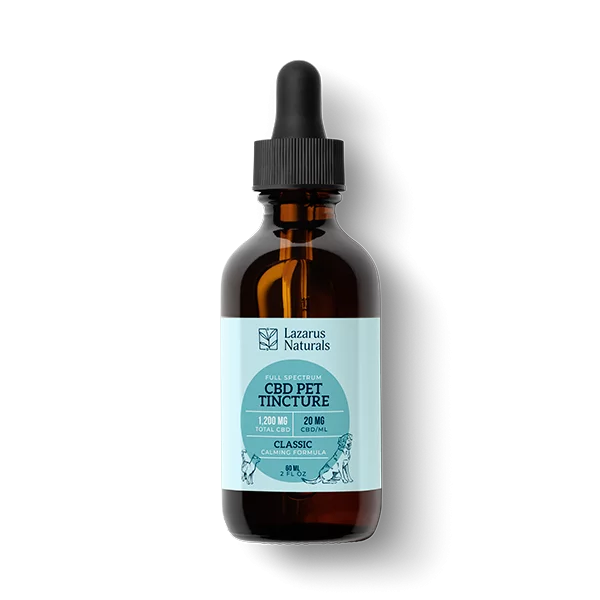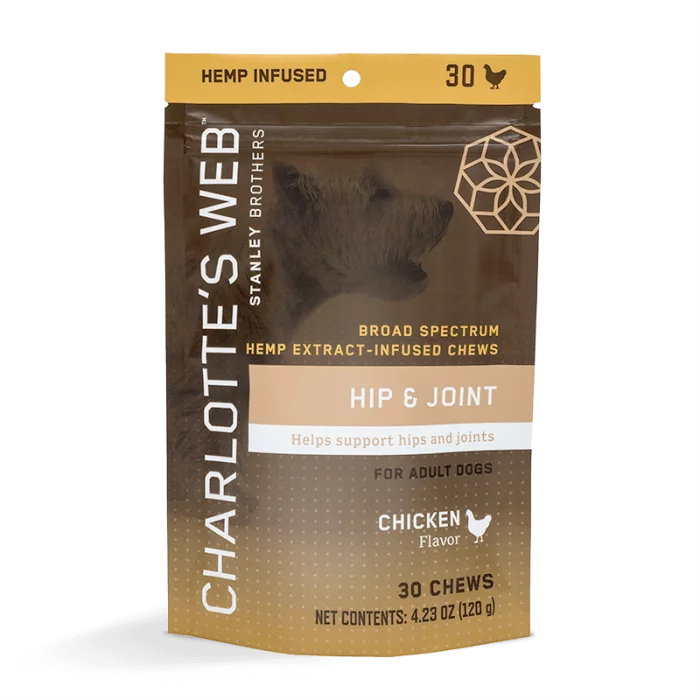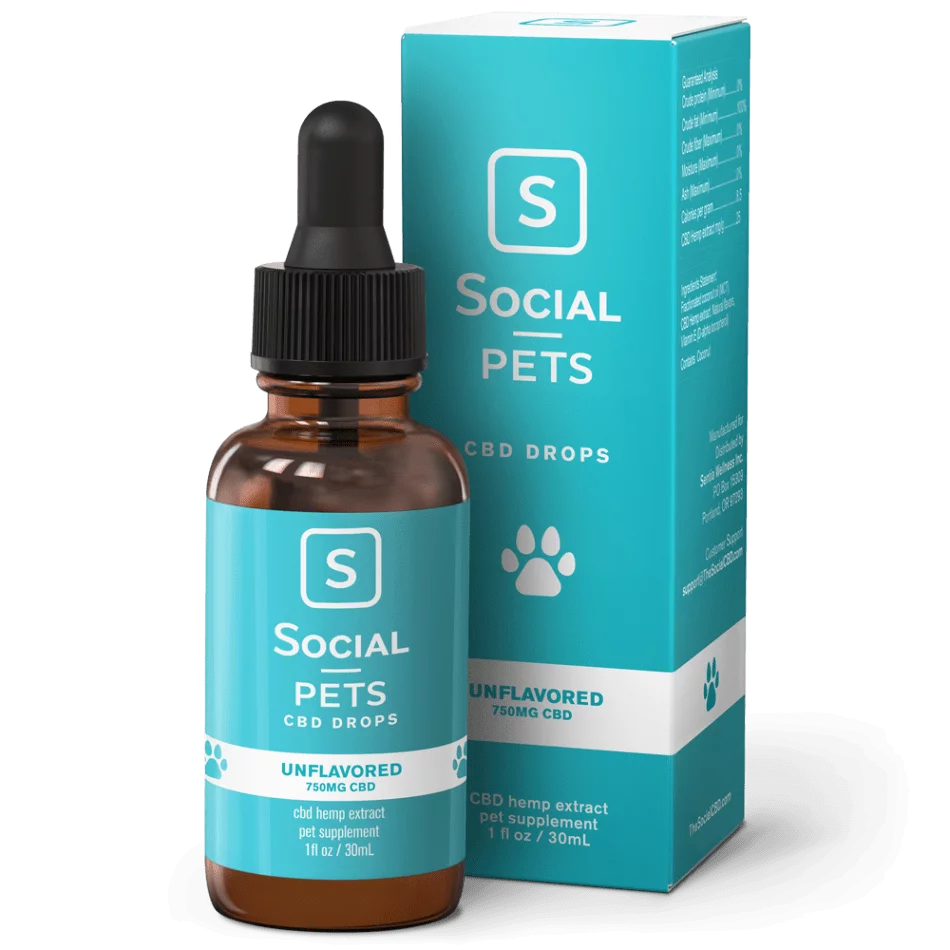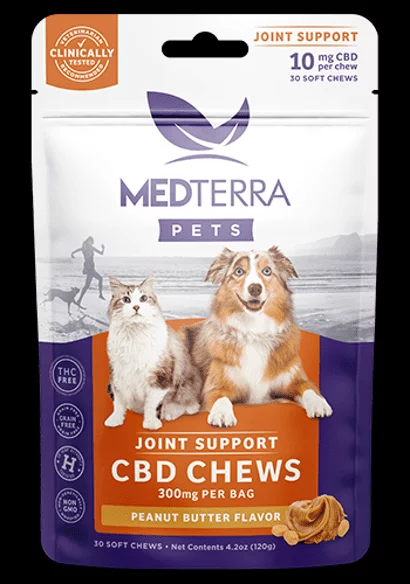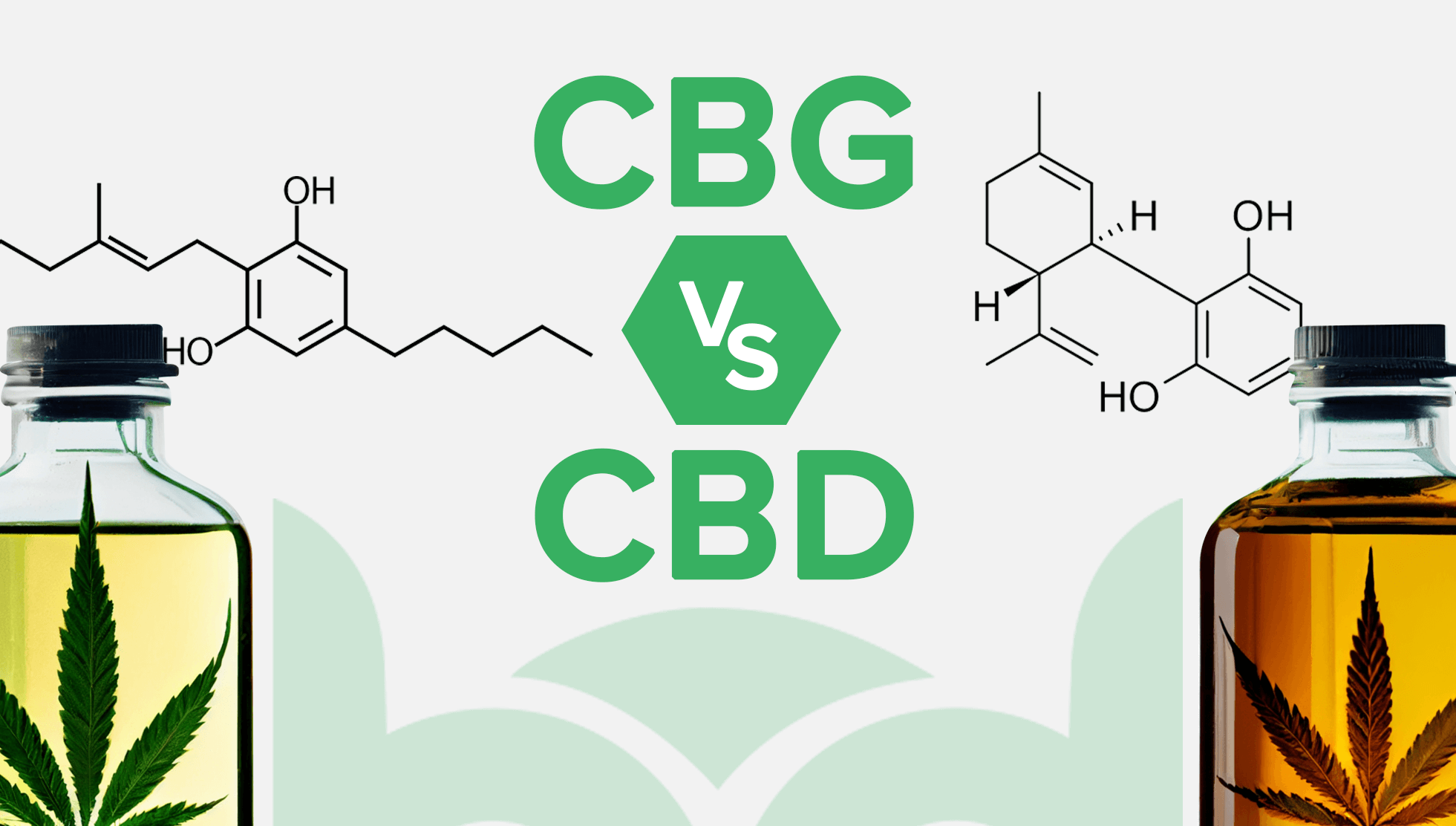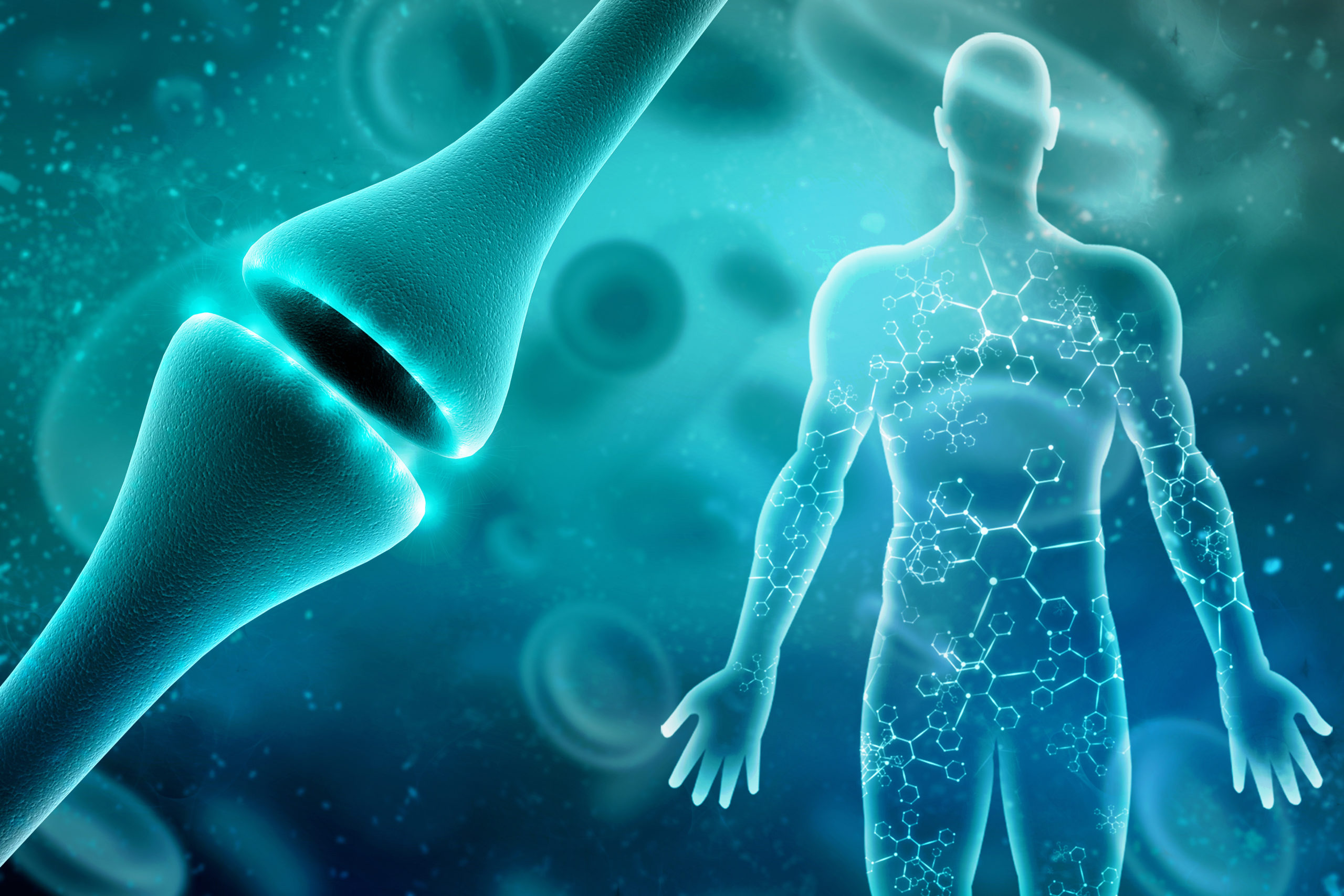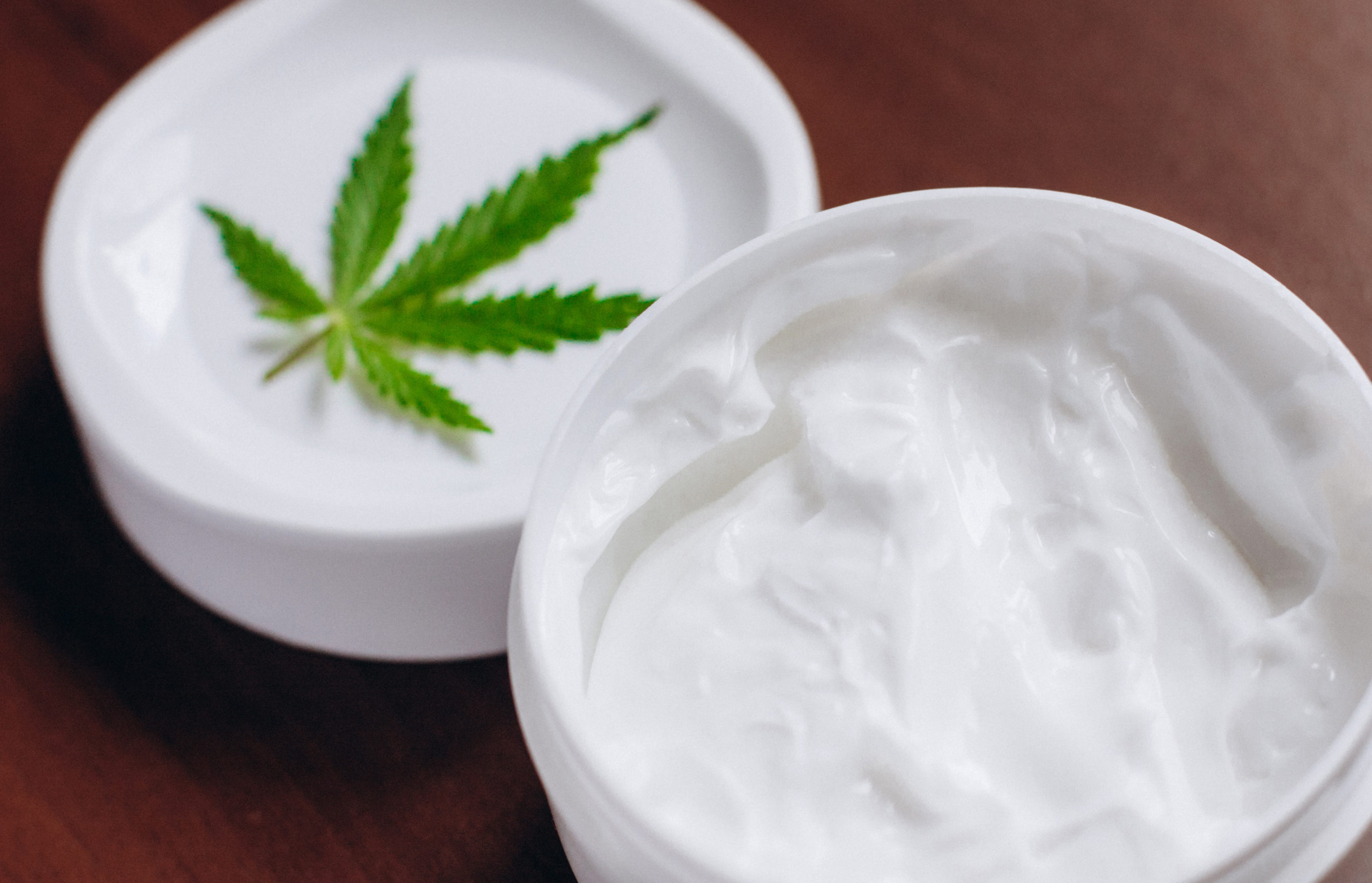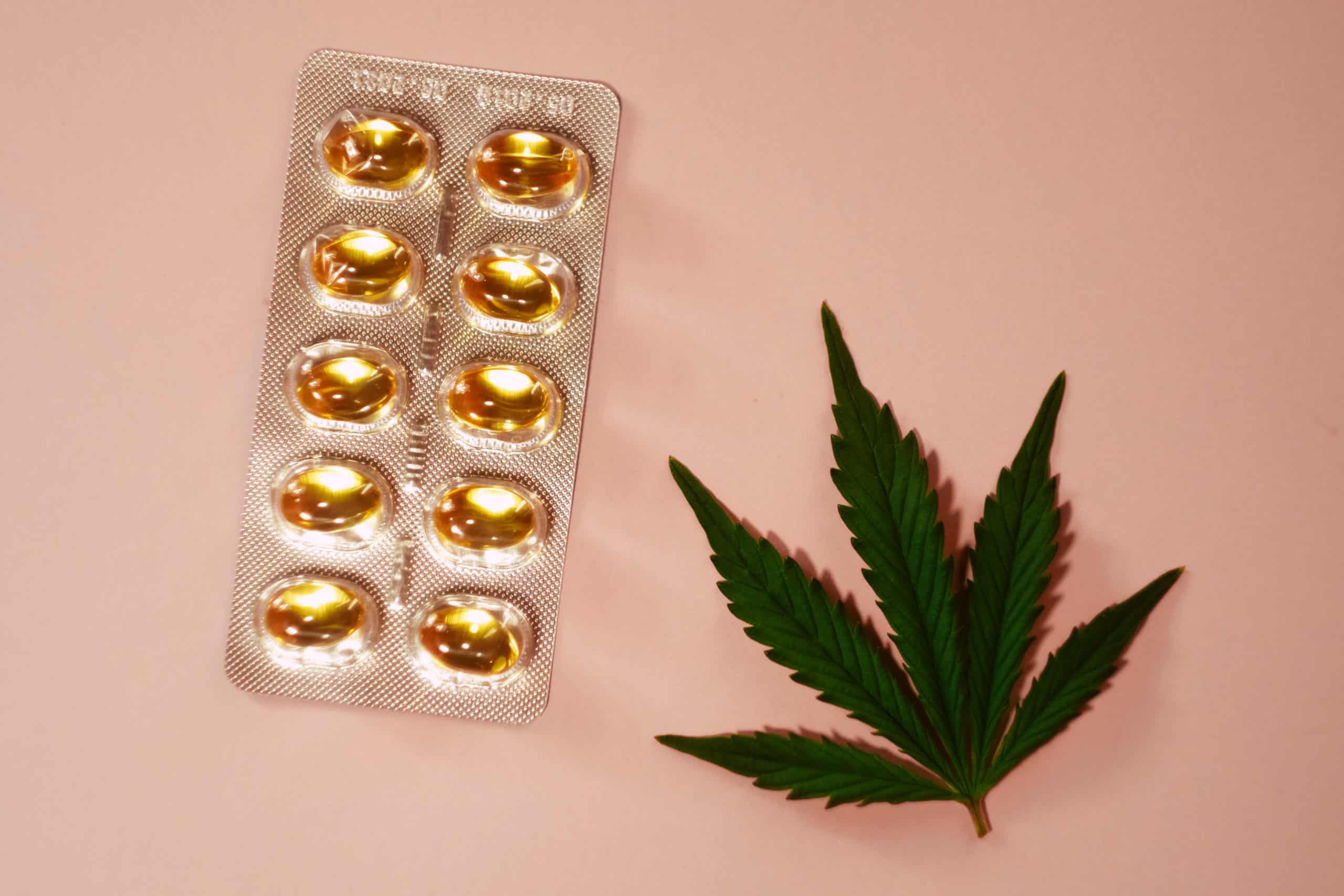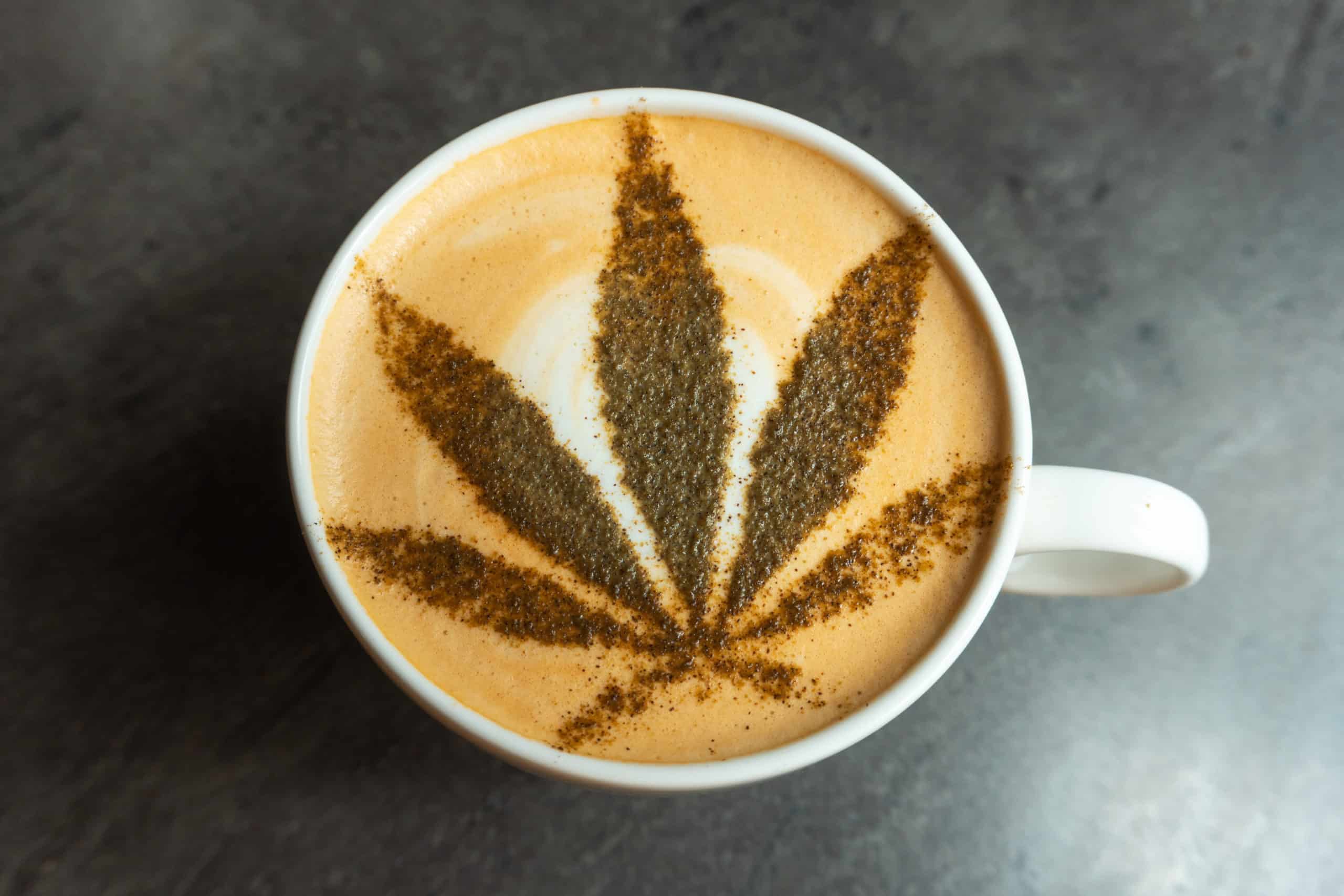-
- Market Research
- |
- CBD Near Me
- |
- Giveaways
- |
- Newsletter
- |
- Contact
- |
- Advertise
- |
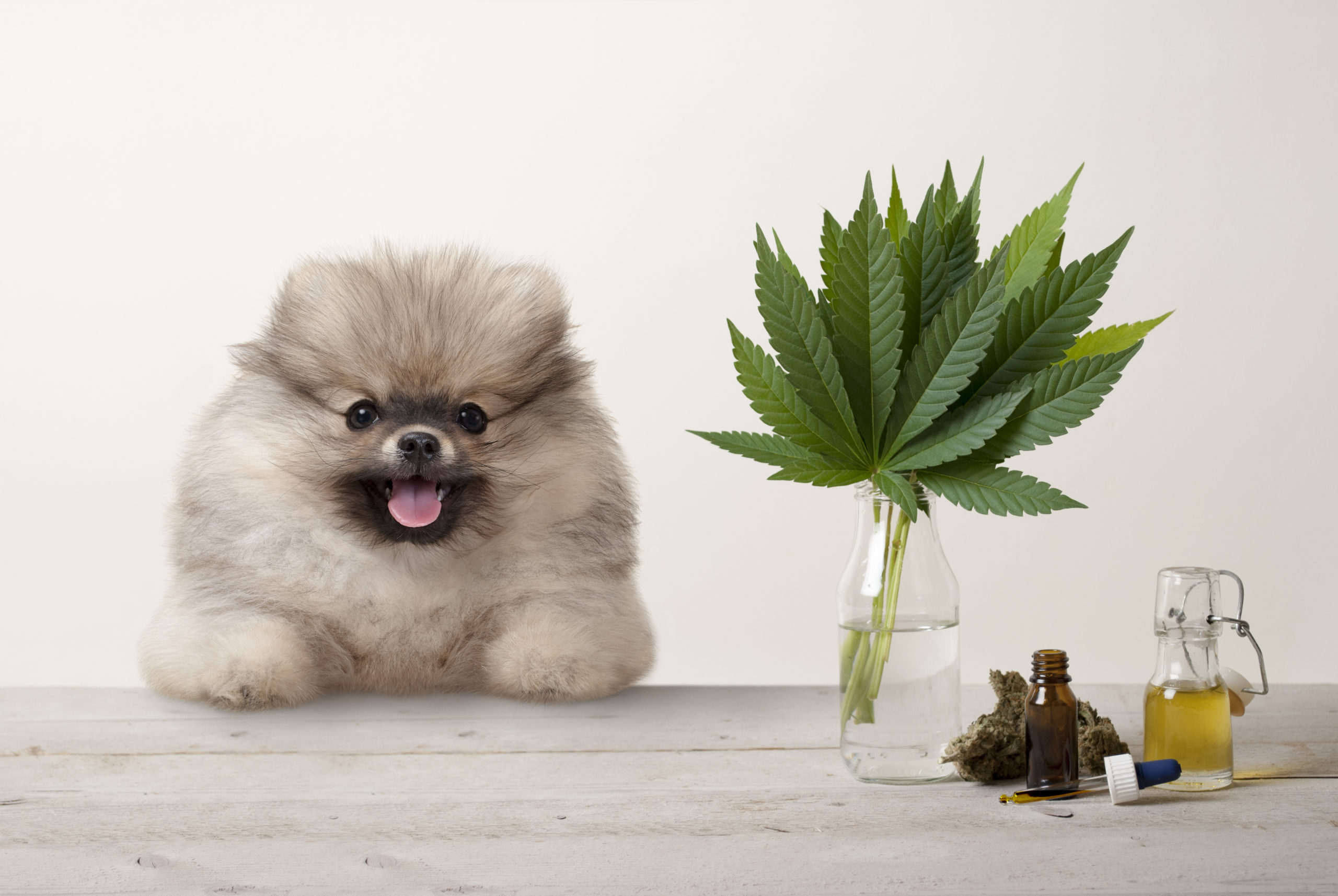
CBD studies involving cats and dogs as participants are virtually non-existent.
We don’t want to discredit what has been done (and we will indeed feature these findings), but you can still count the studies examining the use of CBD for pets with your socks and one mitten on.
Still, speculation is not as empty a pursuit as it is made to be; by looking at what “might” be and asking our veterinarians about CBD’s potential, consumers can make enough noise on behalf of their beloved pets to give the research and regulation a kick.
As for knowing what to ask about, here’s how CBD may be looked at in terms of pet health in the future.
Differences in Dog and Cat Responses to CBD
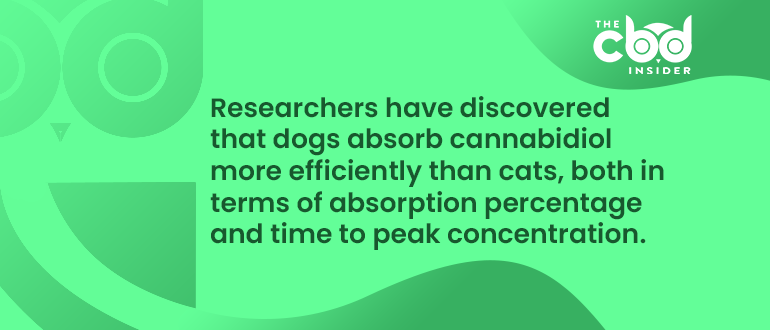
Possibly the most comprehensive finding available on the subject of CBD for pets is a breakdown of the pharmacokinetics of CBD in pets, not its purported health benefits.
Pharmacokinetics refers to the way in which a body processes a compound, including how efficiently the compound is metabolized, where it travels to in the body, how much of the compound is observed in the bloodstream, and more.
In this University of Florida study, eight dogs and eight cats were given 4mg/kg CBD per day (dogs got mobility chews, cats got CBD-infused fish oil).
Researchers then took frequent assessments to measure pharmacokinetics throughout the 84-day trial period.
Here’s a snapshot of the results:
- Dog “Cmax” (peak CBD concentration) was significantly higher (301ng/mL average) than cats (43ng/mL).
- Dog “Tmax” (time of maximum concentration) was faster (1.4h) than cats (2.0h).
- CBD half-life was shorter in dogs (1.0h) than cats (1.5h).
These findings tell us that dogs absorbed the CBD well, but cats did not.
Researchers aren’t positive yet as to why feline absorption of CBD was so much less efficient (could be physiological, could be CBD type, lots of other factors), but this study suggests that the fish-oil base may have been less effective a carrier than the plant-oil base.
Finally, both dogs and cats showed high tolerability and a very low incidence of adverse events in connection with CBD.
Per the authors, “Dosing of 2mg/kg twice daily as an even mixture of CBD and CBDA (cannabidiol acid, chemical precursor to CBD) showed no abnormalities in weekly physical examinations, nor any evidence of organ dysfunction as assessed by blood parameters.”
They went on to note that the soft chew had a 97% acceptance level in dogs.
Of course, absorption capability and even safety are null points if cannabidiol can’t effectively address your pet’s health concerns.
How CBD May Help Your Dog or Cat
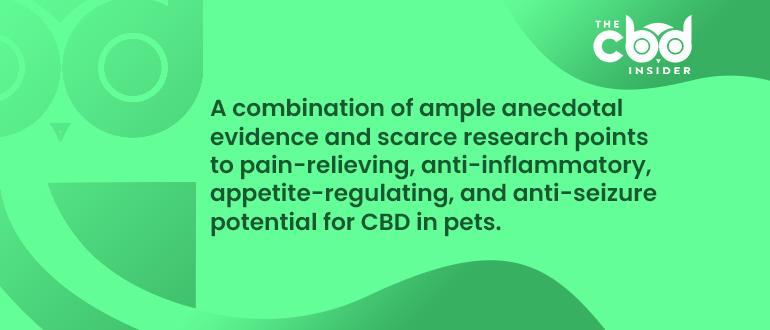
There’s no shortage of anecdotal evidence supporting the use of cannabidiol for separation anxiety in dogs (and in some cases, cats), but in terms of evidence-based support, we still have to settle for studies with human participants.
A particularly well-cited study from the University of Sao Paulo demonstrated that a 600mg dose of CBD could significantly reduce anxiety, cognitive impairment, and discomfort among “treatment-naive” social anxiety disorder (SAD) patients before a simulated public speaking test.
Proposed mechanisms for this anti-anxiety capability are a bit all over the place at the moment, from claims of cannabidiol’s effects on the hippocampus to a whole lot of “we don’t know yet.”
Pain-Relieving Potential
Different kinds of pain travel along different neurological pathways involving dozens of often complex interactions at the cellular level.
This is why determining a particular compound’s pain-fighting efficacy in animals or humans is much more difficult than simply achieving a positive result in trials; without an understanding of the compound’s mechanisms, you’ve got no way of recreating this effect in other instances of pain.
Thankfully, researchers are beginning to uncover how cannabidiol interferes with the pain response (in humans).
This study from the University of Belgrade in Serbia explains how the endocannabinoid receptors—the receptors made to interact with naturally produced cannabinoids and CBD—have a role in pain management.
Outside of the endocannabinoid system, cannabinoids interact with G protein-coupled receptors (GPCR) and others in humans to modulate certain types of pain.
Inflammation
In this Cornell University finding, dogs were given 2mg/kg CBD oil (or placebo) for a period of four weeks, and their owners and veterinarians were supplied with questionnaires to fill out at the outset, midway point, and conclusion.
In addition to subjective data collection, researchers ran blood tests and physical examinations to more precisely gauge how CBD was being processed and what physiological changes, if any, it was promoting.
The results indicated a significant decrease in pain and increase in activity.
Just as importantly, no adverse effects were reported by the owners.
Appetite
This is another issue that requires jumping to human studies, which is less than ideal, but not completely unhelpful.
That said, the relationship between CBD and appetite is humans is highly nuanced and largely contextual.
Researchers are still trying to tease apart the specific mechanisms involved in CBD’s flip-flopping stance on appetite, as in this University of Liverpool finding on “Cannabinoids and Appetite: Food Craving and Food Pleasure,” where CBD was shown to display suppressant and stimulant capabilities depending on the scenario.
Per the study, CBD helps “Not only in the suppression of appetite to counter our susceptibility to the over-consumption of highly pleasurable and energy-dense foods; but also in the treatment of conditions that involve reduced appetite and weight loss.”
Other than winning the award for the most diplomatic phrasing of “junk food,” this finding hints at a normalizing effect of CBD when it comes to appetite.
In other words, it appears as though CBD can flatten out extreme trends in either direction when it comes to appetite, in both sick/underweight people (e.g., chemotherapy patients) and the majority of us who crave “energy-dense foods.”
Seizures
In this randomized clinical trial from Colorado State University’s College of Veterinary Medicine and Biomedical Sciences, dogs were given 2.5 mg/kg CBD-infused oil twice a day for 12 weeks in addition to existing antiepileptic treatments, and the placebo group received non-infused oil under the same conditions.
Seizure activity, adverse effects, and plasma CBD concentrations were compared between groups.
Dogs in the CBD group had a significant (median change: 33%) reduction in seizure frequency against placebo.
No adverse behavioral effects were reported by the owners.
A Note on Safety
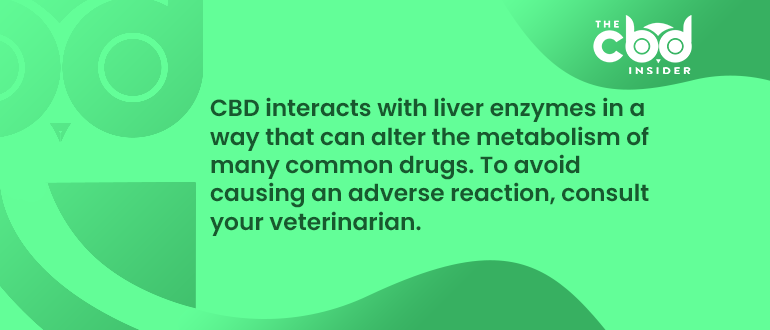
In humans and mice, CBD has been shown on multiple occasions to interact with a large variety of commonly prescribed drugs like anti-inflammatories, antidepressants, and more.
Even though it won’t get you or your pet high, it can alter the metabolism speed and potency of these drugs by suppressing the enzymes our liver uses to process them—more on this in our CBD drug interactions post.
If it’s allowed in your state, we recommend consulting your veterinarian prior to starting a pet on CBD for this reason.
Finally, it’s always wiser to start at the lower end of the 2-4mg/kg range as used successfully in the above studies and monitor your pet closely for subtle signs of discomfort, e.g., decreased appetite, sudden lack of interest in play, etc.
Best CBD for Pets
From chewy treats to fish-flavored tinctures, the vast majority of industry-leading brands have already rolled out CBD product lines for pets.
Here are some of the best CBD pet products from brands that we and consumers across the industry trust.
Lazarus Naturals Calming Pet CBD Tincture
Lazarus Naturals Calming Pet CBD Tincture
Concentration
1,200mg
Price
To check price, click “Learn More.”
Ingredients
Organic Coconut MCT Oil, Full Spectrum Hemp Extract. CONTAINS: Tree Nuts (Coconut)
True to their usual form, Lazarus leads the market in affordable, effective, and widely praised pet CBD products.
Their Calming Pet CBD Tinctures provide a 20mg/mL, full-spectrum oil formulated to enhance your pet’s mood and overall wellness.
Tinctures are available in wild salmon or classic flavors, and Lazarus also offers a flavorless Sensitive Pet CBD Tincture for selective dogs and smaller animals.
Charlotte’s Web Hip & Joint Chews for Dogs
Charlotte’s Web Hip & Joint Chews for Dogs
Concentration
30-count: 2.5mg/chew (75mg total)
60-count: 2.5mg/chew (150mg total)
Price
To check price, click “Learn More.”
Ingredients
Valerian Root, Passionflower, Chamomile, and our Charlotte’s Web™ Hemp Extract. The Hip & Joint Chew in Chicken Flavor includes Glucosamine HCl, Chondroitin Sulfate, Turmeric Root, and Charlotte’s Web™ Hemp Extract. Our Senior Chew in Chicken Flavor includes DHA, EPA, Vitamin E, Elderberry Powder, and Charlotte’s Web™ Hemp Extract.
We’re not alone in our fondness of the inflammation-fighting powerhouse of a formulation used in these Hip & Joint Chews for Dogs by Charlotte’s Web.
These hemp-infused chews also include glucosamine, turmeric powder, and chondroitin sulfate, three evidence-backed supporters of joint health.
Each chew provides 2.5mg of broad-spectrum hemp extract (30-count or 60-count available) in addition to this supporting cast of ingredients.
Social CBD Broad Spectrum Drops for Pets
Social CBD Broad Spectrum Drops for Pets
Concentration
750mg
Price
To check price, click “Learn More.”
Ingredients
750mg, 500mg: MCT Coconut Oil, CBD Hemp Extract, Natural Flavors, Vitamin E
250mg: MCT Coconut Oil, Natural Flavors, CBD Hemp Extract, Vitamin E
*Contains Coconut
These broad-spectrum CBD drops are particularly well-liked for their use of MCT oil—an energy-boosting fat—as it pairs well with discomfort-relieving effects in improving the activity level of your pet.
Social CBD uses multiple non-intoxicating compounds from the plant to boost cannabidiol’s effects, and all products are sourced in the USA.
The 100% plant-based drops are available in bacon, chicken, and peanut butter flavors, as well as an unflavored version for more sensitive pets.
Medterra CBD Pet Joint Support
Medterra CBD Pet Joint Support
Concentration
300mg
Price
To check price, click “Learn More.”
Ingredients
Glucosamine, Chondroitin, Methylsulfonylmethane (MSM), Cannabidiol (CBD), Chickpea Flour, Potato Flour, Cane Molasses, Tapioca Starch, Water, Glycerin, Lecithin, Peanut Butter Flavor, Safflower Oil, Ascorbic Acid, Sorbic Acid, Calcium Propionate, Vitamin E.
This product is especially popular among pet owners looking to improve the quality of life for dogs and cats suffering from sore, stiff joints.
Fortified with glucosamine, methylsulfonylmethane (MSM), and chondroitin, these chews provide a potent mix of joint-boosting ingredients to help your pet stay active for longer.
Each chew provides 10mg of CBD, and pets love the peanut butter flavor.


